-
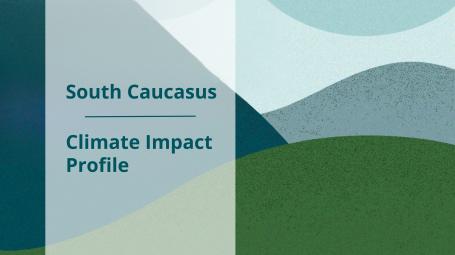
Climate Impact Profile: South Caucasus
The South Caucasus region (Armenia, Azerbaijan and Georgia) is particularly vulnerable to the impacts of climate change. This profile provides an overview of climate trends for near-term (2020–39) and medium-term (2040–59) time periods across the region under the higher-emission SSP3-7.0 scenario with regional conflicts and lower-emission SSP1-2.6 scenario with greater international collaboration, and their impacts across different sectors. -
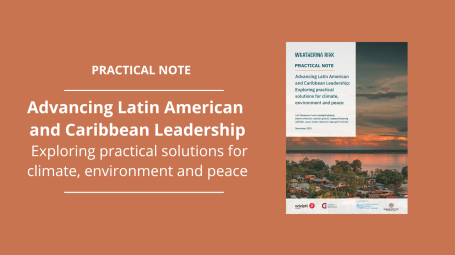
Advancing Latin American and Caribbean Leadership: Exploring practical solutions for climate, environment and peace
Despite the urgency of Climate, Peace and Security (CPS) challenges in Latin America and Caribbean (LAC), the region is still not recognised as a priority within global CPS discussions. Gaps also remain in connecting local and traditional knowledge and experience to global CPS debates. This Practical Note aims to fill these gaps. It explores regional CPS challenges and, most importantly, identifies practical solutions stakeholders should prioritise to address these challenges. -

5 Key Lessons from the Weathering Risk Peace Pillar
This policy brief and policy summary identify 5 key lessons from across the Weathering Risk Peace Pillar projects. These key lessons are distilled from project outcome evaluations and demonstrate how integrated, climate, environment and peace interventions are not only possible, but also make strategic sense. -

Multi-Level Approaches to Sustainable Peace in Nigeria’s Middle Belt
This report examines climate-sensitive peace programming in Nigeria’s Middle Belt, focusing on dialogue and mediation led by the Centre for Humanitarian Dialogue (HD) since 2022. It highlights the impacts of for integrating climate adaptation and resource management into local peace agreements, and showcases best practices. The report offers recommendations to further strengthen inclusive resource-sharing and local peace infrastructures, aiming to boost community resilience, improve livelihoods, and promote lasting peace across Benue, Nasarawa, Plateau, and Taraba states. -

Weathering Risk Peace Pillar: Project Evaluation Syntheses
These project evaluation syntheses identify key highlights, lessons and recommendations from outcome evaluations from the first two project phases of the Weathering Risk Peace Pillar projects in the Bay of Bengal, Iraq, Nigeria, Somalia and Yemen. -
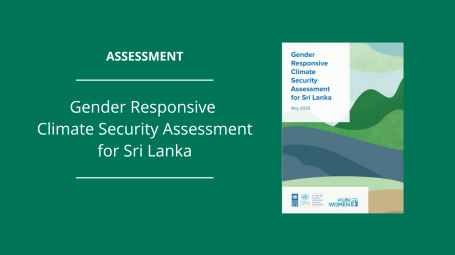
Gender Responsive Climate Security Assessment for Sri Lanka
Commissioned by the UNDP–DPPA Joint Programme and UN Women with the support from the Government of Australia, and conducted by adelphi research, this pioneering assessment offers the first integrated analysis of climate resilience, peacebuilding, and gender dynamics in Sri Lanka. The report provides actionable insights and locally tailored recommendations to support inclusive governance, equitable climate adaptation, and strengthened social cohesion. -
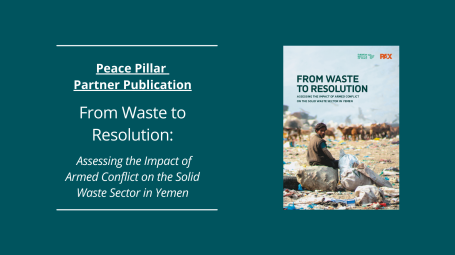
From Waste to Resolution: Assessing the Impact of Armed Conflict on the Solid Waste Sector in Yemen
Co-authored by the Institute and PAX, this report investigates Yemen’s waste crisis as a result of the armed conflict and reflects on ways to address it as a contribution to peacemaking, conflict prevention, and stabilisation. It identifies the main governance challenges in relation to effective waste management and analyses the impact of Yemen's solid waste crisis on society, security, and the environment. The report also identifies entry points to respond to this crisis and support local resilience to both environmental and conflict risks. -
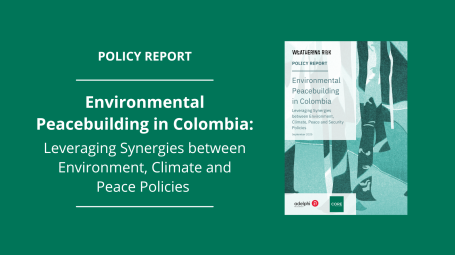
Environmental Peacebuilding in Colombia
This report analyses the peacebuilding policy approaches of the Santos, Duque, and Petro administrations in Colombia and explores environmental peacebuilding good practices at the local level to address the intricate relationship between environmental degradation, climate change, and peacebuilding efforts. It presents recommendations for implementing an Environmental Peacebuilding Policy (EPP) to strengthen resilience and achieve sustainable peace. -
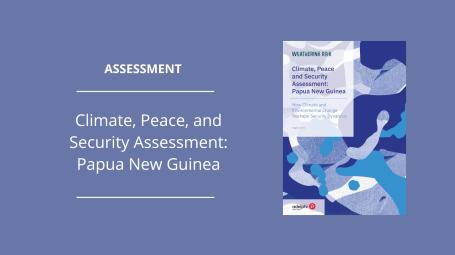
Climate, Peace and Security Assessment: Papua New Guinea
Papua New Guinea (PNG) is at a pivotal moment, facing the converging threats of climate change, environmental degradation and persistent insecurity. These intersecting challenges demand urgent and coordinated action by all relevant stakeholders. This assessment aims to provide up-to-date evidence to support policy planning and programming in PNG’s various regions and offers recommendations to strengthen the country’s resilience and enhance its capacity to cope, withstand and respond to concurrent shocks.

